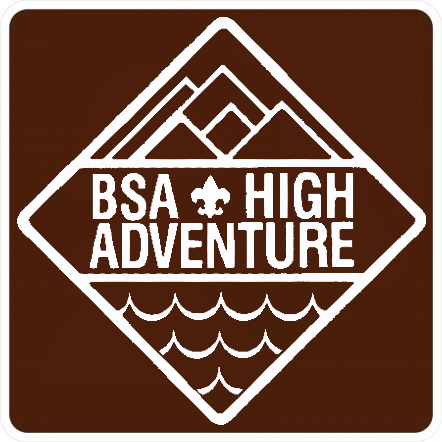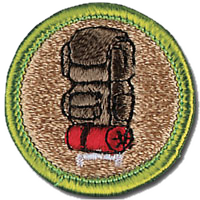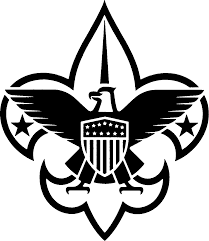
At a Glance
Adventure Type:High Adventure
Elevation: 4881
Return Time: 4:45pm
Difficulty: Hard
Trail Map: Trail_map
Length: 17
Meet Time: 8:10am
Surface: dirt
Trail Type: loop
Est Cost: 0
Health form parts: ABB
Location: Cast Lake and Horseshoe Ridge Trailhead (North), Oregon
Location Website: Cast Lake and Horseshoe Ridge Trailhead (North)
Note: https://www.fs.usda.gov/recarea/mthood/recarea/?recid=53350
Cast and Burnt Lake Loop - 17mi
Explore this 17-mile loop trail near Rhododendron, Oregon. Generally considered a challenging route, it takes an average of 9 h 58 min to complete. This is a popular trail for backpacking and hiking, but you can still enjoy some solitude during quieter times of day. The best times to visit this trail are June through October.
Guide to Safe Scouting
Adults complete the following:- SAFE Checklist
- Boy Scouts of America Scouter Code of Conduct
- Youth Protection and Adult Leadership
- Camping
- Medical Information and First Aid
- Chemical Fuels and Equipment
- Activity Planning and Risk Assessment
- Sports and Activities
- Insurance
- Transportation
- Animal and Insect Hazards
- Incident Reporting
Pre-hikes, endurance training
How are we going to prep?
Pre-hikes, endurance training
What age appropriate modifications can be made?
Plan a 5mi out and back option for younger scouts
Gear
- Day Pack
- 10 Essentials
- Hiking boots
- Hiking Poles
- Backpack
- Compass
- Knife
Pre-Adventure Skillsets
- Backpacking
- Be Prepared
- Cooking & Tools
- First Aid
- Leave No Trace
- Map & Compass
- Nature
Sample Agenda
Sat 8:10am Arrive at CCC 8:25am Leave CCC 9:45am Arrive at trailhead 10:00am start trek 12:00pm Lunch (Sack) 12:30pm resume trek (make sure to refill waters at crossings) 3:30pm Choose dispersed campsite & Setup Camp Explore area - split rock, etc 4:30pm dinner 6:30pm Go over requirements, play games, etc 10:00 pm Lights out Sun 7:00am Wake & prepare breakfast 8:00am break camp 8:30am Hike back to Trailhead 12:30pm Lunch @ trailhead 1:00pm resume trek 3:00pm Head to CCC (Optionally add a dinner stop +1Hr) 4:45pm Arrive at CCC
Rank Requirements
key: At Meeting / On Adventure
Awards
key: At Meeting / On Adventure
Merit Badges
key: At Meeting / On Adventure

Backpacking
1. Discuss the prevention of and treatment for the health concerns that could occur while backpacking, including hypothermia, heat reactions, frostbite, dehydration, insect stings, tick bites, snakebite, and blisters.:
2a. List 10 items that are essential to be carried on any backpacking trek and explain why each item is necessary.
2b. Describe 10 ways you can limit the weight and bulk to be carried in your pack without jeopardizing your health or safety.
3a. Define limits on the number of backpackers appropriate for a trek crew.
3b. Describe how a trek crew should be organized.
3c. Tell how you would minimize risk on a backpacking trek.
3d. Explain the purpose of an emergency response plan.
4a. Describe the importance of using Leave No Trace principles while backpacking, and at least five ways you can lessen the crews impact on the environment.
4b. Describe proper methods of handling human and other wastes while on a backpacking trek. Describe the importance of and means to assure personal cleanliness while on a backpacking trek.
4c. Tell what factors are important in choosing a campsite.
5a. Demonstrate two ways to treat water and tell why water treatment is essential.
5b. Explain to your counselor the importance of staying well hydrated during a trek.
6a. Demonstrate that you can read topographic maps.
6b. While on a trek, use a map and compass to establish your position on the ground at three different locations, OR use a GPS receiver to establish your position on a topographic map and on the ground at three different locations.
6c. Explain how to stay found, and what to do if you get lost.
7. Tell how to prepare properly for and deal with inclement weather.:
8a. Explain the advantages and disadvantages of the different types of backpacking stoves using at least three different types of fuel.
8b. Demonstrate that you know how to operate a backpacking stove safely and to handle liquid fuel safely.
8c. Prepare at least three meals using a stove and fuel you can carry in a backpack.
8d. Demonstrate that you know how to keep cooking and eating gear clean and sanitary , and that you practice proper methods for food storage while on a backpacking trek.
9a. Write a plan that includes a schedule for a patrol/crew backpacking hike of at least 2 miles.
9b. Conduct a prehike inspection of the patrol and its equipment.
9c. Show that you know how to properly pack your personal gear and your share of the crews gear and food.
9d. Show you can properly shoulder your pack and adjust it for proper wear.
9e. While using the plan you developed for requirement 9a, carry your fully loaded pack to complete a hike of at least 2 miles.
Flier
www.Sherwood116.com
Troop 116
High Adventure @ Cast and Burnt Lake Loop - 17miExplore this 17-mile loop trail near Rhododendron, Oregon. Generally considered a challenging route, it takes an average of 9 h 58 min to complete. This is a popular trail for backpacking and hiking, but you can still enjoy some solitude during quieter times of day. The best times to visit this trail are June through October.

High Adventure!
Cast and Burnt Lake Loop - 17mi
Rhododendron, Oregon
Rhododendron, Oregon

8:10am - 4:45pm

meet at Cedar Creek Church on < date > @ 8:10am

Whole Troop!
We’ll meet at Cedar Creek Church @ 8:10am and carpool to Cast and Burnt Lake Loop - 17mi in Rhododendron, Oregon.
Gear
- Day Pack
- 10 Essentials
- Hiking boots
- Hiking Poles
- Backpack
- Compass
- Knife
Skills
- Backpacking
- Be prepared
- Cooking & Tools
- First aid
- Leave no trace
- Map & Compass
- Nature

Make sure to register on troopmaster,
look for the link in your email!!!
look for the link in your email!!!



Troop 116
T-Program Planningfor Campout
Prior to T-5, the PLC should have determined (and dates below):
Outing Event:________________________
Event Date:_______________
Location: ___________________________
Scout in charge: ______________________
QR Code/URL for drive
Itinerary:
Special activities and equipment needed for the outing:
T-5 Date:_______________
- Patrol Leaders hand out event flyers and permission slips and get a straw count.
- Patrol Leaders assign Grubmasters and Assistant Grubmasters (based on advancement
- needs).
- Patrols plan their camp activities.
T-4 Date:_______________
- (PLC assigns SPL and PL’s in charge of outing, SM/ASM’s identify the tour leader.)
- Scouts return permission slips and trip fees to their Patrol Leaders.
- Grubmasters presents menus, make necessary changes, and get SPL/ASM approvals.
- Patrols discuss activity materials and assign Scouts responsible for acquiring materials.
- Patrols plan campfire skits and songs.
T-3 Date:_______________
- Grubmasters assign duty roster responsibilities within their patrols.
- Patrols assign/select tent partners.
- Patrols discuss gear needs and who brings what. Patrol Quartermaster makes gear list
T-2 Date:_______________
- Patrols finalize activity and campfire plans – get SPL/ASM approval.
- Patrols finalize gear and equipment needs, make arrangements with Troop Quartermaster.
T-1 Date:_______________
- Patrols check out tents and other camping gear.
- Grubmasters check out necessary cooking gear.
- Grubmasters receive food money from the troop treasurer.
- Patrols discuss free-time activities.
- Troop Gear Check
T+1 Date:_______________
- Patrols and Grubmasters check in gear and inventory sheets.
- Patrols complete event evaluation.
Week 1

Month's Theme: High Adventure
Topic: ________________
Date: _____________
Topic: ________________
Date: _____________

Activity
Description
Run By
Time
Pre-opening Activity
Opening Ceremony
- - Flag presentation
- - Oath and Law
- - Uniform inspection
Group Instruction
- - First Aid
- - Map & Compass
- - Backpacking
- - Cooking & Tools
Skills Instruction
Scout - Tenderfoot
Scout - Tenderfoot
2nd - 1st
Merit Badge
-

1. Discuss the prevention of and treatment for the health concerns that could occur while backpacking, including hypothermia, heat reactions, frostbite, dehydration, insect stings, tick bites, snakebite, and blisters.: [First Aid]
-
6a. Demonstrate that you can read topographic maps. [Map & Compass]
-
8a. Explain the advantages and disadvantages of the different types of backpacking stoves using at least three different types of fuel. [Cooking & Tools]
-
8b. Demonstrate that you know how to operate a backpacking stove safely and to handle liquid fuel safely. [Cooking & Tools]
-
2a. List 10 items that are essential to be carried on any backpacking trek and explain why each item is necessary. [Backpacking]
-
2b. Describe 10 ways you can limit the weight and bulk to be carried in your pack without jeopardizing your health or safety. [Backpacking]
Patrol Breakouts
- - T-Minus activities (Duty roster/Menu/etc)
- - Patrol outing planning
- - Advancement check-in (see how advancement is going and what is needed -> report to SPL)
- - (Seasonal planning) Summer camp activities, APC Ideas
Game
Closing
- - Closing Flags
- - Announcements
- - SM’s minute
Total 90 minutes of meeting
After the meeting
Leadership team reviews plans for the next meeting and for the main event.
Week 2

Month's Theme: High Adventure
Topic: ________________
Date: _____________
Topic: ________________
Date: _____________

Activity
Description
Run By
Time
Pre-opening Activity
Opening Ceremony
- - Flag presentation
- - Oath and Law
- - Uniform inspection
Group Instruction
- - Backpacking
Skills Instruction
Scout - Tenderfoot
Scout - Tenderfoot
2nd - 1st
Merit Badge
-

3a. Define limits on the number of backpackers appropriate for a trek crew. [Backpacking]
-
3b. Describe how a trek crew should be organized. [Backpacking]
-
4b. Describe proper methods of handling human and other wastes while on a backpacking trek. Describe the importance of and means to assure personal cleanliness while on a backpacking trek. [Backpacking]
-
4c. Tell what factors are important in choosing a campsite. [Backpacking]
Patrol Breakouts
- - T-Minus activities (Duty roster/Menu/etc)
- - Patrol outing planning
- - Advancement check-in (see how advancement is going and what is needed -> report to SPL)
- - (Seasonal planning) Summer camp activities, APC Ideas
Game
Closing
- - Closing Flags
- - Announcements
- - SM’s minute
Total 90 minutes of meeting
After the meeting
Leadership team reviews plans for the next meeting and for the main event.
Week 3

Month's Theme: High Adventure
Topic: ________________
Date: _____________
Topic: ________________
Date: _____________

Activity
Description
Run By
Time
Pre-opening Activity
Opening Ceremony
- - Flag presentation
- - Oath and Law
- - Uniform inspection
Group Instruction
- - Be Prepared
- - Backpacking
Skills Instruction
Scout - Tenderfoot
Scout - Tenderfoot
2nd - 1st
Merit Badge
-

3c. Tell how you would minimize risk on a backpacking trek. [Be Prepared]
-
3d. Explain the purpose of an emergency response plan. [Be Prepared]
-
6c. Explain how to stay found, and what to do if you get lost. [Be Prepared]
-
4b. Describe proper methods of handling human and other wastes while on a backpacking trek. Describe the importance of and means to assure personal cleanliness while on a backpacking trek. [Backpacking]
-
4c. Tell what factors are important in choosing a campsite. [Backpacking]
Patrol Breakouts
- - T-Minus activities (Duty roster/Menu/etc)
- - Patrol outing planning
- - Advancement check-in (see how advancement is going and what is needed -> report to SPL)
- - (Seasonal planning) Summer camp activities, APC Ideas
Game
Closing
- - Closing Flags
- - Announcements
- - SM’s minute
Total 90 minutes of meeting
After the meeting
Leadership team reviews plans for the next meeting and for the main event.
Week 4

Month's Theme: High Adventure
Topic: ________________
Date: _____________
Topic: ________________
Date: _____________

Activity
Description
Run By
Time
Pre-opening Activity
Opening Ceremony
- - Flag presentation
- - Oath and Law
- - Uniform inspection
Group Instruction
- - Leave No Trace
- - Nature
- - Backpacking
Skills Instruction
Scout - Tenderfoot
Scout - Tenderfoot
2nd - 1st
Merit Badge
-

4a. Describe the importance of using Leave No Trace principles while backpacking, and at least five ways you can lessen the crews impact on the environment. [Leave No Trace]
-
7. Tell how to prepare properly for and deal with inclement weather.: [Nature]
-
5a. Demonstrate two ways to treat water and tell why water treatment is essential. [Backpacking]
-
5b. Explain to your counselor the importance of staying well hydrated during a trek. [Backpacking]
Patrol Breakouts
- - T-Minus activities (Duty roster/Menu/etc)
- - Patrol outing planning
- - Advancement check-in (see how advancement is going and what is needed -> report to SPL)
- - (Seasonal planning) Summer camp activities, APC Ideas
Game
Closing
- - Closing Flags
- - Announcements
- - SM’s minute
Total 90 minutes of meeting
After the meeting
Leadership team reviews plans for the next meeting and for the main event.